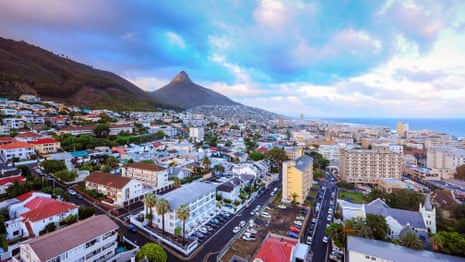Authorities in Cape Town have launched an investigation after a foul stench swept over the South African city.
Officials inspected sewage facilities for leaks and an environmental health team was activated before the source of the smell was discovered: a ship docked in the harbour carrying 19,000 live cattle from Brazil to Iraq.
Zahid Badroodien, the official in the mayor’s office in charge of water and sanitation, wrote on social media that investigators had confirmed the source of the “sewage smell blanketing parts of the city” was the cattle ship.
Animal welfare groups said the “unimaginable” stench indicated the conditions the animals faced on the vessel, and criticised the practice of live exports.
The National Council of the Society for the Prevention of Cruelty to Animals (SPCA) said that it strongly opposed the export of live animals by sea and that it had sent a veterinary consultant aboard the ship to assess the animals’ welfare.
“This smell is indicative of the awful conditions the animals endure, having already spent two-and-a-half weeks onboard, with a buildup of faeces and ammonia,” the SPCA said in a statement. “The stench onboard is unimaginable, yet the animals face this every single day.”
The 190-metre long (623ft) Al Kuwait is a Kuwaiti-flagged livestock vessel, according to the Marine Traffic website. It docked in Cape Town to load feed for the cattle, according to the SPCA.
South Africa’s Democratic Alliance political party, which governs Cape Town, also condemned the transport of live cattle.
“Live export, as evidenced by this situation, exposes animals to perilous conditions such as dangerous levels of ammonia, rough seas, extreme heat stress, injuries, dirty environments, exhaustion, and even death,” the party said in a statement.
Earlier this month, a ship carrying more than 16,000 cattle and sheep also bound for the Middle East returned to Australia after becoming stranded at sea for nearly a month due to the attacks by Houthi rebels in the Red Sea. Australia’s government refused an application to try again to re-export the animals via a longer route past South Africa, saying it was unable to be sure “the arrangements for the transport of the livestock to their final overseas destination are appropriate to ensure their health and welfare”.
Badroodien wrote that the ship was due to depart soon.
